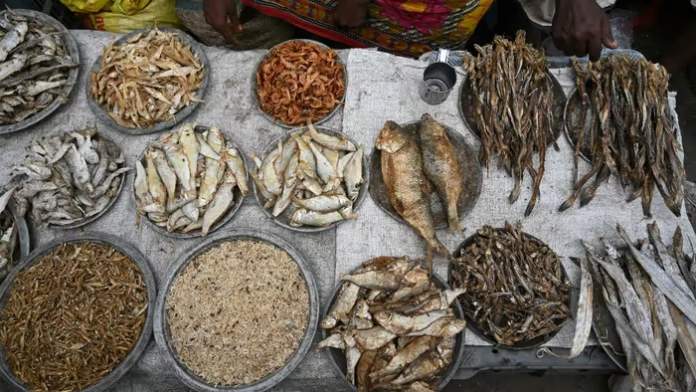Tripura’s trade with Bangladesh has been on a steady decline since 2022-23, raising concerns among businesses and traders dependent on cross-border commerce. Industries that once thrived on exports to Bangladesh are now facing challenges, with authorities trying to identify and resolve the issues behind the slump. The state government is working to revive trade by addressing policy hurdles and improving infrastructure at border points.
Tripura’s Industries and Commerce Minister highlighted the drop in trade volume and emphasized the need for intervention. He pointed out that factors such as changes in trade policies, logistical bottlenecks, and currency exchange fluctuations have contributed to the downturn. Many traders in Agartala, which serves as a key trade hub, have reported difficulties in maintaining steady business with their Bangladeshi counterparts due to increased tariffs and delays in customs clearance.
Exporters dealing in rubber, tea, and bamboo-based products—Tripura’s key export commodities—have suffered significant losses. The decline has particularly affected small and medium-sized enterprises that rely on the Bangladeshi market. Many business owners believe that easing trade restrictions and improving coordination between the two countries could help reverse the trend.
The issue of deteriorating infrastructure at border trading points has also come under scrutiny. Traders have complained about congestion at land ports, limited storage facilities, and outdated customs procedures, all of which have slowed trade. Authorities have acknowledged these problems and are exploring solutions such as modernizing border checkpoints and streamlining documentation processes.
Currency exchange rates have also played a role in the trade decline. The depreciation of the Bangladeshi Taka against the Indian Rupee has made imports from Tripura costlier for Bangladeshi buyers. As a result, demand for goods from Tripura has reduced, forcing local businesses to look for alternative markets or cut back on production.
Despite these challenges, efforts to revive trade are underway. The Tripura government is in discussions with its Bangladeshi counterparts to resolve policy disputes and improve bilateral trade relations. Authorities are considering incentives for exporters and infrastructure upgrades to facilitate smoother transactions.
Business leaders in Tripura are hopeful that diplomatic efforts will lead to favorable policy changes. Many have urged the government to negotiate lower tariffs and introduce measures that make it easier to export goods. Some experts have also suggested diversifying Tripura’s export basket to include more value-added products that can compete better in the Bangladeshi market.
The tourism industry has also been indirectly affected by the trade slowdown. With fewer business interactions between the two regions, travel between Tripura and Bangladesh has decreased, impacting hotels, transport services, and other related sectors. Some officials believe that boosting trade could also strengthen tourism ties, bringing economic benefits beyond just exports.
Authorities remain optimistic that trade will rebound with strategic interventions. The state government is closely monitoring trade patterns and working with stakeholders to address bottlenecks. Meetings between Indian and Bangladeshi officials are expected to pave the way for smoother trade operations in the coming months.
Traders and businesses in Tripura are eager to see improvements. Many believe that with the right policies and infrastructure investments, bilateral trade with Bangladesh can regain momentum, benefiting both economies. The coming months will be crucial in determining how effectively these challenges are addressed and whether trade between Tripura and Bangladesh can return to its previous growth trajectory.




